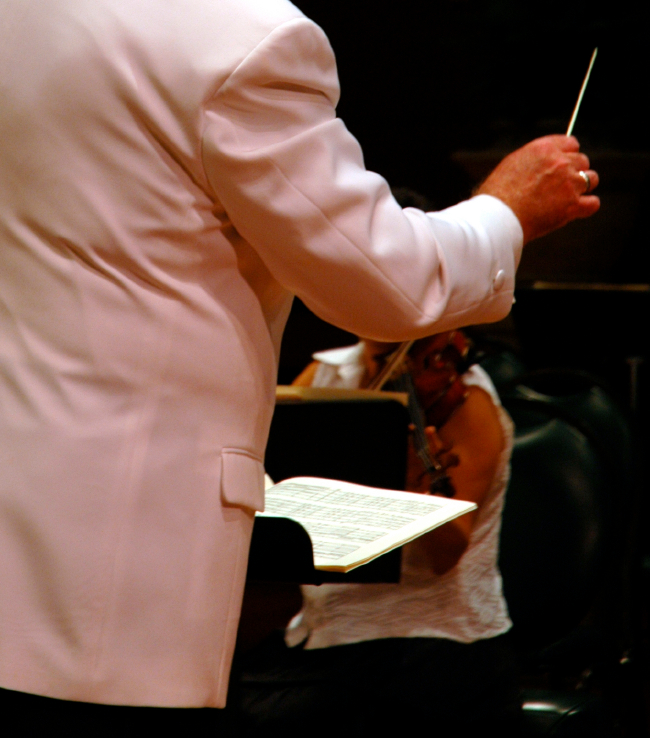Classical Music's 'Need for Speed'

Is faster really better? Classical music performances are expected to be meticulous, impeccable and proficiently accurate. Artists hope to be called a “virtuso.” All the thousands of notes must be delivered spot-on. So what then, distinguishes one soloist or ensemble from another performing the same timeless piece?
Interpretation is what it’s called, but what are the boundaries of interpretation in classical music? At least in jazz, that door is wide open. Musicians can choose their own notes and rhythms for a solo passage. Not so in classical. The only things that can be messed with are tempo and dynamics (loudness/softness). The notes (with only few exceptions) are etched in stone.
On paper, in the sheet music, tempo is notated with the use of descriptive words, not numbers: largo, moderato, andante, vivace. The dynamics are also written in a flexible way: pianissimo, piano, mezzo-piano, mezzo-forte, forte and fortissimo. Relative speed and volume are a matter of taste.
This is why you might hear mood swings of tempo or dynamic variations. Given how lengthy some classical pieces are, you probably won’t hear an orchestra play one piece the same way another orchestra would. A familiar passage might clip along nicely as the New York Phil plays it, yet be noticeably drawn out by the LA Phil. What sounds soft and gentle in Boston, may be much more assertive in Chicago. This is really the only way for a conductor, ensemble or soloist to make a name for themselves, and deliver something in a way you may have never heard it before.
The familiar classical repertoire (the pieces we all know and love) is essentially a collection of cover tunes, played by different groups hoping to not sound just like the last one that played it.
But, with so little wiggle-room in interpretation, how does an artist stand out from the others and get noticed? For a soloist, usually the answer is speed. If you can play a difficult passage faster than someone else, an audience is more likely to be wowed by your performance. Fair enough, but what does that do to the music? How did the composer want it to sound? Will some notes fly by so imperceptibly fast that they will never be heard? Will some parts drag so slowly that you’ll lose the sense of melody, waiting for the next note?
Take for example, Tchaikovsky’s famous 1st Piano Concerto… a piece so well known, even listeners who are not regular classical concertgoers would notice variations. There are tens of thousands of notes, hundreds of multi-note runs, and many of Tchaikovsky’s signature grace notes (quick neighboring notes). The faster it’s played, the fewer the notes that can be savored, or even heard. A 64-note run can fly by in a 1.5-second blink of an eye.
However, knowing what we know about the composer, he may have even meant it to be just a challenge, that only a limited number of people can accomplish.
Still, some of the beauty and harmony of the music is often lost to the racing competition by its performers. You simply cannot enjoy a sound that lasts only a millisecond.
Composer Saint-Saëns was much the same. He was a child keyboard prodigy, and his piano works are often only played by those with hands as fast as the composer’s. For a composer to achieve fame in his or her lifetime, they too customize their music so that only they could play it. But, as pianist Arthur Rubinstein reached his later years, he began playing more deliberately, even the Saint-Saëns pieces. As you can see in a number of YouTube videos with André Previn and the London Symphony Orchestra, as Rubinstein reached the age of 88, the musicality was much easier to appreciate without the flare and ferocity, that he was famous for as a younger man.
The need for speed is not unique to competitive soloists and small ensembles. Conductors will often push orchestral musicians to the envelope of their abilities with faster moments, and (even in the same piece) draw out the slower phrases to a snail’s pace, just for contrast.
So, that leaves us with a dilemma. What IS a good interpretation? As always, that depends on your interpretation of the interpretation. Given the limitations, is it okay with you that liberties taken with tempo and dynamics often change the character and flow of melodies to the point of distraction? Are you excited and impressed by extremes in performance, or would you prefer to hear the music without histrionics? Do the composer’s intentions have any relevance, or are artists free to manipulate?
Perhaps, as we hear different interpretations of the compositions we enjoy the most, we’ll reach our own conclusions about whose version was best. I’ve heard several recordings conducted by and performed by the composers themselves, that I thought weren’t as good as others I had heard. It is a matter of personal taste. Yet, I am always aware that every performer’s first job is to impress the audience, not just faithfully play a difficult work without any mistakes. Some musicians may see performance as an extreme sport, and pushing boundaries should be encouraged. But sometimes it can be distracting,

Home